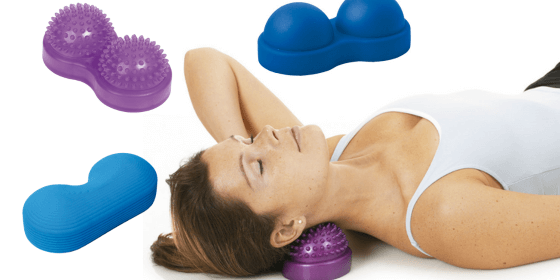Tension in the neck can be very unpleasant and have various causes. From incorrect posture and lack of exercise to stress and illness, there are many factors that can lead to neck tension. However, there are several ways to relax the neck.
This article will present some effective exercises and tips to relieve and prevent neck tension. Whether you work at a desk or play sports, you’ll find helpful tips to loosen your neck muscles and relieve pain. Our TOGU experts also give valuable advice for a healthy and relaxed posture in everyday life.
What are the causes of a tense neck?
Tension in the neck acute neck pain can result from a variety of causes. Here are some of the most common:
- Incorrect posture: Poor posture can lead to neck strain. For example, constantly leaning your head forward while working at a computer can strain your neck.
- Stress and mental strain: Stress can tighten muscles and cause tension in the neck.
- Injuries and overwork: accidents, injuries, or overwork from heavy physical labor can also cause neck tension.
- Lack of exercise: a lack of physical activity can cause the neck muscles to lack exercise and become more susceptible to tension.
- Sleeping position: an incorrect sleeping position can also lead to neck tension. For example, sleeping on a pillow that is too high or too flat can strain the neck.
- Diseases: Some diseases, such as arthritis or fibromyalgia, can lead to neck tension.
It is important to identify the causes of neck tension and treat them appropriately to prevent long-term pain and discomfort.
What helps to relax the neck?
To relax the neck, there are several ways. One way is to use massage techniques to relax the shoulders and neck and loosen the muscles. Self-massage with fingers or a fascia roller can help, or a professional massage by a physiotherapist or masseur.
In addition, there are also tips for a healthy posture in everyday life to prevent neck tension.
- An ergonomic design of the workplace can help to avoid an unnatural posture of the neck when working at the computer.
- Regular breaks and exercise in the office routine are important to avoid one-sided strain on the neck muscles.
- Balancing sports and relaxation techniques such as yoga or progressive muscle relaxation can also help to relax the neck and prevent tension.
- Another option is targeted relaxation exercises specifically designed for the neck muscles.
- Stretching exercises can help loosen and relax the muscles in the neck.
- Strengthening exercises can also be useful to strengthen the muscles in the neck and thus prevent tension.
What are the relaxation exercises for the neck?
There are several exercises that can help relieve a stiff neck and relax the neck muscles. Here are some examples:
- Shoulder circles: Stand or sit upright and slowly circle the shoulders. Lift the shoulders up and then pull them back and down. Repeat this exercise several times in both directions.
- Neck rotation: Slowly and carefully turn your head to one side and hold the position for a few seconds. Repeat this on the other side.
- Neck bends: Slowly bend the head forward so that the chin sinks to the chest. Hold the position for a few seconds and then return to the starting position.
- Lateral stretching: Bend your head to one side so that your ear is tilted toward your shoulder. Hold the position for a few seconds and then switch to the other side.
- Shoulder lift: Slowly raise your shoulders and hold the position for a few seconds before lowering them again.
These exercises can help loosen and relax the neck muscles. However, it is important to do them slowly and carefully and to stop immediately if there is pain or discomfort in the neck. In case of persistent discomfort or pain in the neck, it is recommended to consult a doctor or physiotherapist to initiate specific therapeutic measures.
Our TOGU experts advise:
Our simple and effective tip for relaxing the neck is to take regular breaks and exercise in your daily routine. Try to get up every 30 minutes and stretch or take a short break from walking to relieve the neck muscles. Small exercises like shoulder circles or neck rotations can also help relieve tension and relax the neck.

